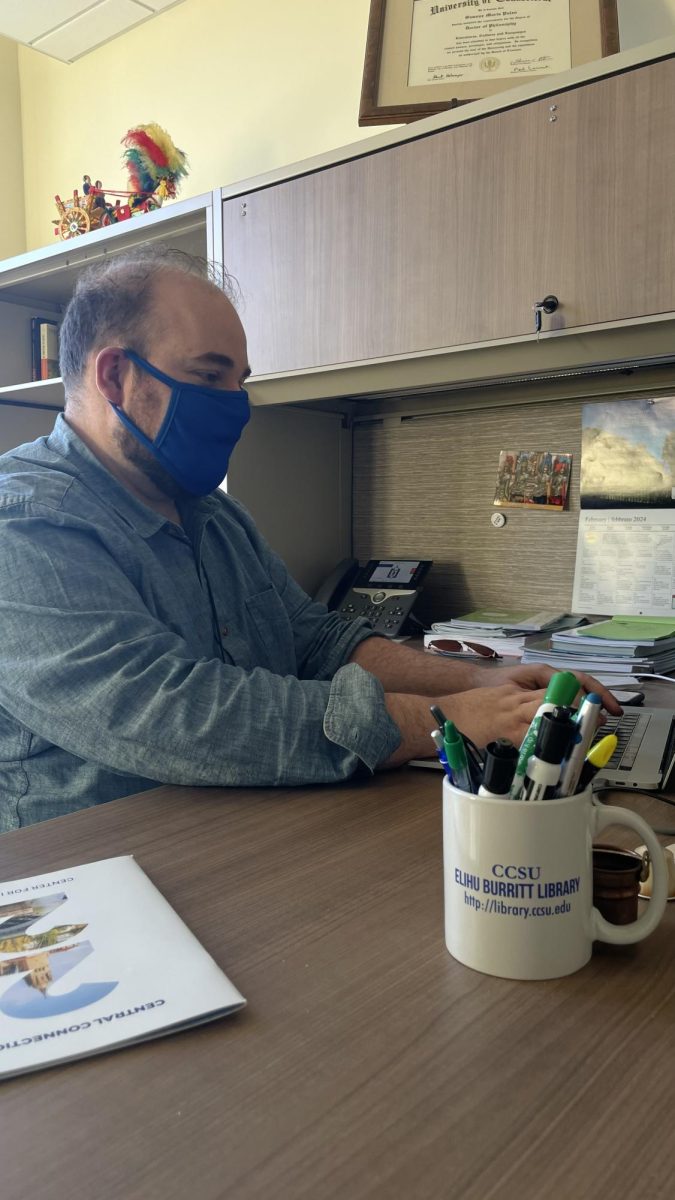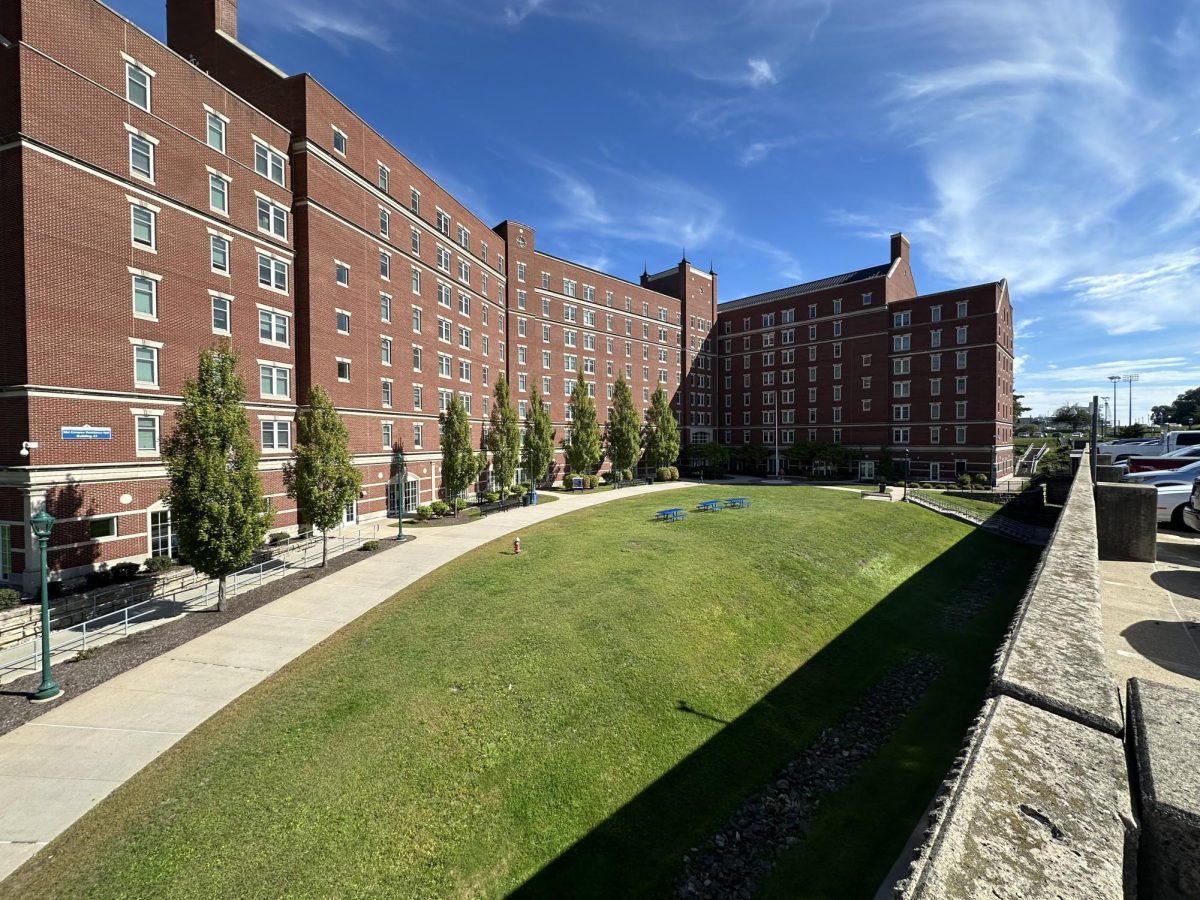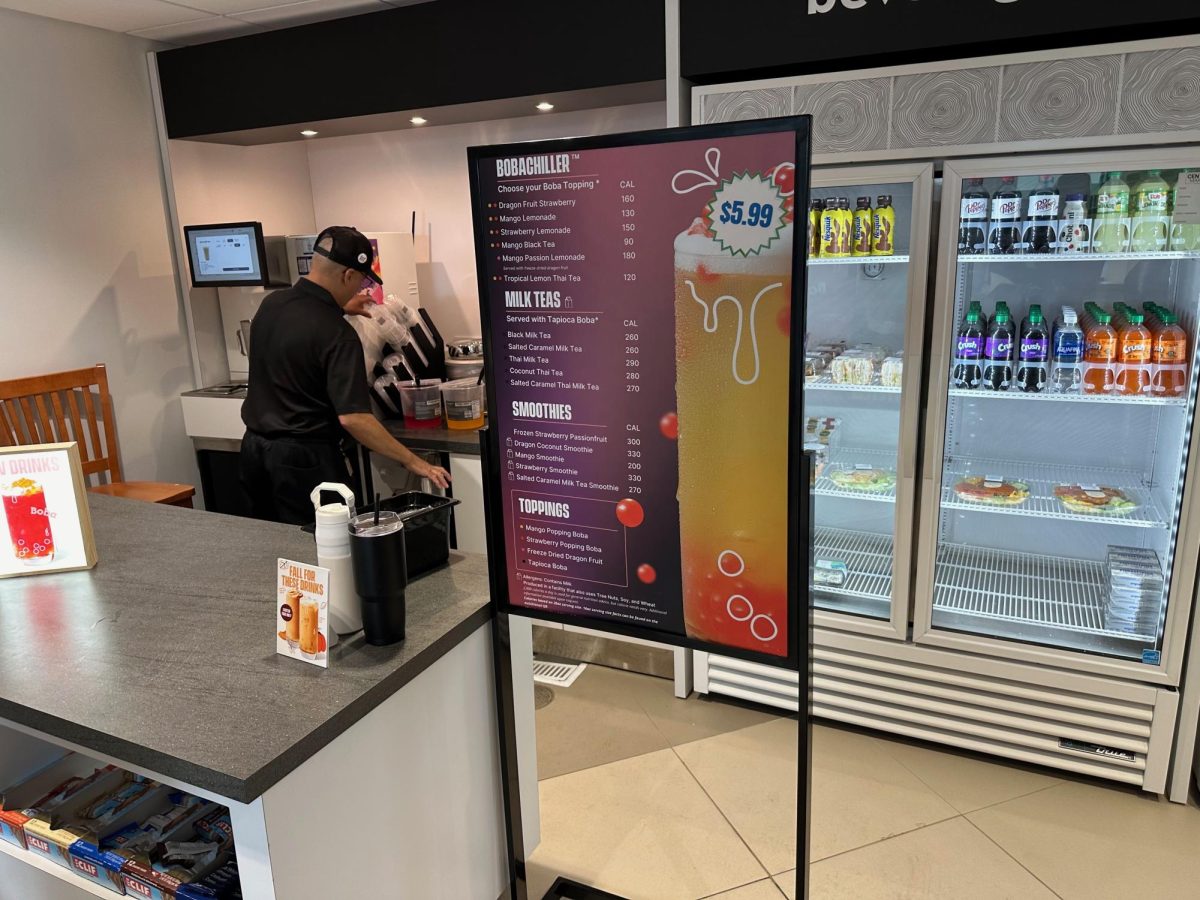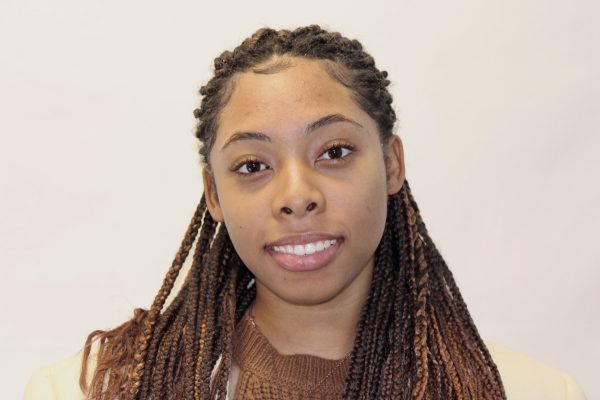As people’s everyday lives return to normal following the COVID-19 outbreak, some students who would otherwise wear masks feel pressured not to use them, while others believe they are unnecessary.
Students are advised to still be cautious of their health as the possibility of getting the flu or COVID-19 is still at stake.
Dr. Amber Cheema said people feel less inclined to get vaccinated as more time passes. People think the likelihood of getting COVID-19 has decreased. People do not believe vaccination will help prevent them from getting these infections.
“Now, as more and more people have had COVID, their attitude is like, ‘I have had COVID, and it wasn’t that bad, so what is the vaccine going to help me with anyways? I could deal with getting COVID’,” Dr. Cheema said.
James McGuire, junior and English secondary education primary at Central Connecticut State University, said wearing a mask makes him feel protected but is now more uncomfortable as wearing masks is less prominent and wearing a mask will raise unwanted suspicion.
“Even when people surround me, and no one else is wearing a mask, it’s more like I don’t wanna single myself out,” McGuire said. “I work in customer service. If you’re wearing a mask at work, there is absolutely someone who will be like, ‘So why are you wearing that?’”
Dr. Cheema said that wearing masks can reduce transmission of infectious diseases like COVID-19, especially for immunocompromised individuals. Despite potential infection suspicions, they should be self-advocates and inform their peers. Currently, a mix of people regularly wear masks.
“Just because somebody thinks you have an infection when you’re wearing it [masks], “Cheema said. “I feel like they [students] should still be self-advocates and stand up for themselves and tell their peers that no, they’re doing it to prevent it [an infection].”
David Naumec, an assistant history professor at CCSU, said a few students have contacted him about being absent from class because of health conditions, with two students being absent due to a COVID diagnosis.
McGuire said he didn’t get ill during the COVID pandemic; he hopes others use masks when sick. But, during flu season, in class, people were openly coughing without a mask on, which was appalling.
“For the most part, I feel safe on campus; I am mildly concerned by people who are coming and coughing [in class] and stuff during the cold and flu season,” McGuire said.
Maddie Lawton, a sophomore nursing major at CCSU, said she works at the hospital and is used to people still wearing masks around her. She would prefer people to wear masks when sick and is grateful when they do, but she does not think people must wear masks.
“I don’t think anybody who wears masks has COVID. Sometimes they could be sick, could have the flu, could have a cough, they don’t want to pass it along, or they could be somebody who is high risk, and they just don’t want to get sick, which I respect,” Lawton said.
COVID has become a milder illness due to vaccinations and passive exposure, allowing people to build up their immune systems. Some students have almost no symptoms and often choose not to get tested because they don’t think it’s COVID.
“I had a friend who ended up catching COVID and was pretty sure he caught it here because people weren’t testing anymore,” McGuire said. “I have a massive bottle of hand sanitizer in my bag, and anytime I touch something, I’m always using it.”
Dr. Cheema advises students to be cautious even though previously mandated health policies like wearing a mask were lifted. Regular hand washing and social distancing are crucial for preventing illness. Wearing masks and maintaining social distancing around sick people and contacts can help reduce the severity of the flu and COVID. Vaccination is a safer option as well.




